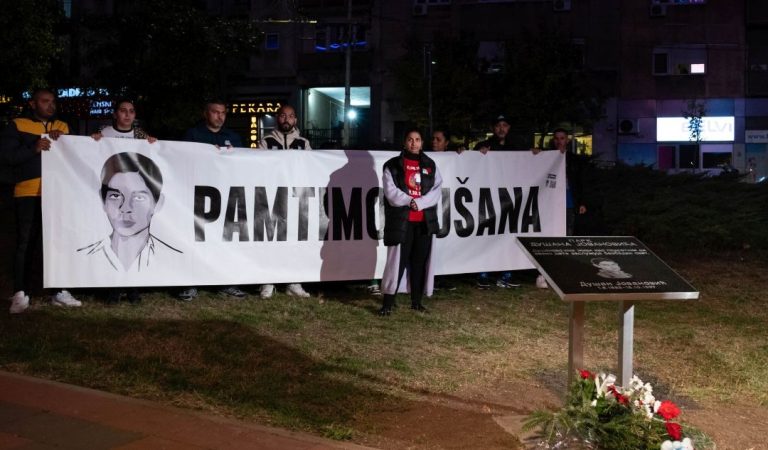The controversial Social card algorithm, low levels of social benefits and widespread violations of labor rights, particularly among education workers, are just some of the issues highlighted in the European Commission’s new annual report, which draws on input previously submitted by the A 11 Initiative to this EU body.
The European Commission’s new report offers a highly critical assessment of Serbia’s policies on protecting vulnerable groups, especially regarding discrimination. As emphasized in the A 11 Initiative’s detailed comments, the past year has been marked by serious violations of labor rights, most notably through the unlawful reduction of teachers’ salaries.
Old shortcomings under Chapter 19 persist – Serbia has yet to begin drafting a new Labor law or a new Law on strikes, the latter of which has proven to be outdated and fails to adequately protect workers’ right to strike. The Commission notes that strikes and protests in the education sector underscore the urgent need to amend the Law on strikes without delay.
Within the same chapter, the Commission recommends amendments to the Law on social protection to improve both the coverage and adequacy of social assistance for those living below the poverty line, including welfare and child benefits. Serbia must also respond to the 2024 recommendations of the European Commission against Racism and Intolerance (ECRI) regarding decision-making processes within the Social Card system. As the A 11 Initiative has repeatedly warned, the use of a non-transparent algorithm has deprived the poorest citizens of their right to social assistance, with nearly 60,000 people losing this support over the past three years.
The European Commission calls for a revision of the Social Card registry to ensure transparency in the operation of algorithmic systems, the development of effective legal remedies and the establishment of a strong oversight mechanism for this relatively new tool in our country.
Regarding discriminatory conditions for obtaining parental allowance, the report notes that Serbia amended the Law on financial support to families with children in September 2024 to increase certain benefits. However, it failed to address the 2022 recommendations of the UN Committee on Economic, Social and Cultural Rights to remove discriminatory conditions. The A 11 Initiative highlighted this issue both in its annual report and in submissions to the European Commission and UN bodies, and welcomes the Commission’s recognition of this matter as one requiring urgent action.
The report further underscores that Roma women, older women, women living in poverty, women with disabilities, as well as refugees and internally displaced women, continue to face multiple and intersecting forms of discrimination. It notes that forced evictions of Roma continue to take place in violation of domestic and international law, which is a problem long documented by the A 11 Initiative.
Moreover, job descriptions for local Roma coordinators, teaching assistants and health mediators remain inconsistent, while their employment conditions are unstable. Solutions for internally displaced persons remain slow and limited, requiring increased funding.
Under Chapter 23, in its assessment of gender equality in employment and social policy, the Commission also addresses the consequences of annulling the Law on gender equality, which suspended employers’ obligations to report on gender equality and equal pay. Additionally, it highlights that the Ombudsman reacted minimally and belatedly in the context of student and civic protests. The report also notes the initiative, submitted by civil society organizations, including the A 11 Initiative, to dismiss the Ombudsman.
Beyond the teachers’ strike, the report points to other notable developments over the past year, including the detailed analysis of civil protests and the alleged use of sound weapons against demonstrators during the large protest held on March 15 in Belgrade. Despite an interim measure issued by the European Court of Human Rights in this case, the authorities have yet to take credible steps to disprove the allegations.
The A 11 Initiative expresses its appreciation that the inequalities and rights violations it raised in its submission have once again been acknowledged in this year’s European Commission report. We remain committed to doing everything within our power to address these persistent issues affecting everyday rights and to continue informing both the domestic public and international bodies about our findings.
In Belgrade, November 5, 2025



